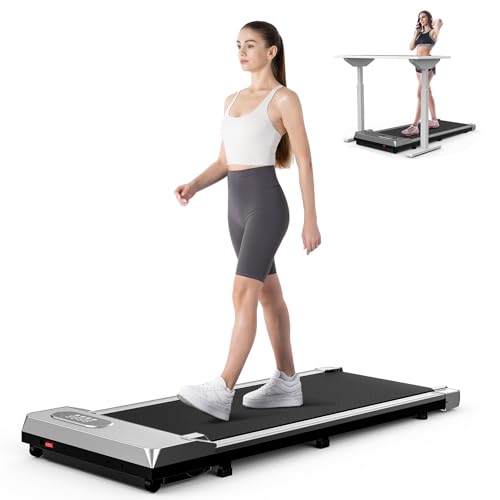The Walking Machine: A Comprehensive Guide to Your Fitness Companion
In today's busy world, where time is a high-end, maintaining a constant workout regimen can be a challenge. For many, a walking machine-- frequently understood as a treadmill-- serves as a perfect physical fitness companion. This article provides a thorough take a look at walking machines, including their advantages, types, upkeep pointers, and frequently asked questions.
Why Choose a Walking Machine?
Walking machines use a practical and effective way to incorporate cardiovascular exercise into day-to-day life. Here are numerous crucial advantages:
- Convenience: Walking machines permit individuals to exercise anytime, despite climate condition or time constraints. They are perfect for busy schedules.
- Versatility: Users can stroll, jog, or perform at their own pace and strength.
- Safety: Walking machines provide a lower risk of injury compared to outside walking or running, particularly for novices or those recuperating from injuries.
- Tracking Progress: Many treadmills come with built-in monitors that track metrics like speed, distance, and calories burned.
Types of Walking Machines
When considering a walking machine, it's vital to choose the ideal type based upon private fitness goals and space restrictions. Below are the primary types of walking machines:
| Type | Description |
|---|---|
| Manual Treadmills | These machines do not have a motor, and users require to stroll or go to rotate the belt. |
| Electric Treadmills | Powered by an electric motor, allowing users to set the speed and slope effortlessly. |
| Folding Treadmills | Designed for simple storage, these treadmills can be folded up when not in usage. |
| Desk Treadmills | Perfect for a double work and exercise environment, these compact machines permit walking while working. |
| Slope Trainers | These enable users to mimic uphill walking, boosting exercise strength and calorie burn. |
Picking the Right Walking Machine
Choosing the ideal walking machine can significantly affect inspiration and effectiveness. Here are some aspects to think about:
Key Features to Look For
- Motor Power: An effective motor makes sure a smooth and constant exercise. For occasional walkers, a 1.5 HP motor is generally enough; for much heavier use, search for 3.0 HP and above.
- Belt Size: A broader and longer belt supplies more space for a comfy stride. Standard sizes vary from 16 inches broad and 50 inches long.
- Incline Options: Adjustable incline settings can mimic walking or running uphill, increasing the strength of the exercise.
- Shock Absorption: Good shock absorption minimizes the danger of joint injuries and boosts convenience.
- Console Features: Look for built-in workouts, heart rate monitors, and connection features like Bluetooth for a more appealing experience.
Spending plan Considerations
Walking machines can be found in a wide variety of prices, depending upon features and building quality. Here's a rough budget plan breakdown:
| Price Range | Features |
|---|---|
| Under ₤ 300 | Basic handbook or small electric treadmills with limited features. |
| ₤ 300 - ₤ 700 | Advanced electric treadmills with slope, medium power motors, and much better warranties. |
| ₤ 700 - ₤ 1500 | Top quality electric treadmills with bigger built-in screens, substantial functions, and guarantees. |
| ₤ 1500 and above | High-end models using innovative technology, functions, and durable building and construction for serious physical fitness enthusiasts. |
Upkeep Tips for Your Walking Machine
To make sure durability and optimal performance of a walking machine, think about the following upkeep pointers:
- Regular Cleaning: Dust and sweat can collect on the machine and the belt. Wipe down the surfaces and clean the belt regularly.
- Lubrication: Depending on the design, lubing the running belt regularly can avoid wear and tear. Examine the manufacturer guidelines for suggested lubrication schedules.
- Examination: Periodically examine the machine for loose screws or used parts. Tighten and change as required.
- Calibration: Occasionally, examine the calibration of your machine's metrics to guarantee they provide accurate data.
- Correct Use: Follow the producer's suggestions for weight limitations and functional standards.
FAQs About Walking Machines
1. Are walking machines a great workout?
Yes, walking machines offer an excellent cardiovascular workout, can aid with weight loss, and enhance overall health.
2. How typically should I use a walking machine?
Go for at least 150 minutes of moderate-intensity aerobic activity weekly, which can quickly be achieved with routine sessions on a walking machine.
3. Can I slim down on a walking machine?
Yes, incorporating a walking machine regimen into a healthy diet can promote weight reduction, particularly if integrated with intervals and incline training.
4. Is it safe for seniors to use a walking machine?
Yes, walking machines can be safe for senior citizens with low-impact settings and safety functions like handrails. However, individuals need to seek advice from with their doctor before starting any exercise program.
5. What's the distinction between a treadmill and a walking machine?
The term "walking machine" generally describes a treadmill meant for walking, while "treadmill" can refer to machines used for various strengths, including running.
With their flexibility and convenience, walking machines can significantly enhance one's physical fitness journey. By carefully picking stellamullen.top , guaranteeing proper maintenance, and incorporating various exercise techniques, users can maximize their walking machine's benefits. As with any workout program, consistency is crucial to achieving lasting physical fitness outcomes.

